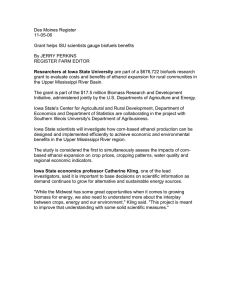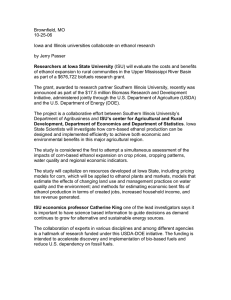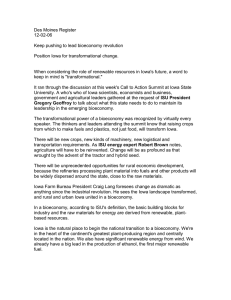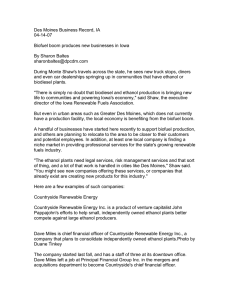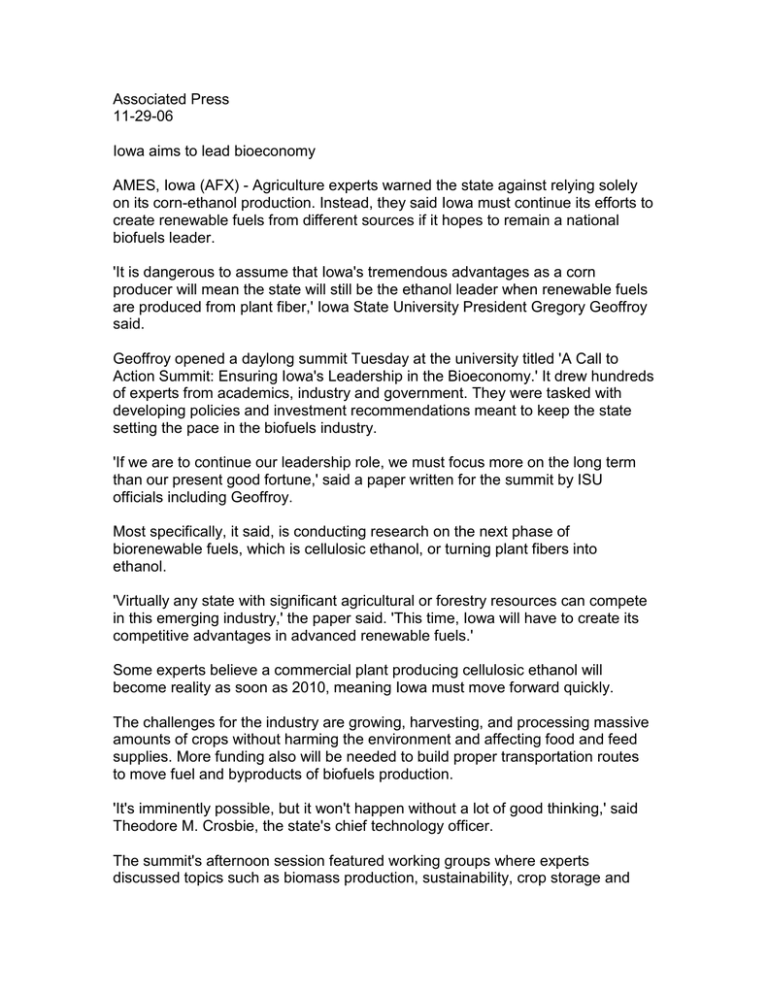
Associated Press
11-29-06
Iowa aims to lead bioeconomy
AMES, Iowa (AFX) - Agriculture experts warned the state against relying solely
on its corn-ethanol production. Instead, they said Iowa must continue its efforts to
create renewable fuels from different sources if it hopes to remain a national
biofuels leader.
'It is dangerous to assume that Iowa's tremendous advantages as a corn
producer will mean the state will still be the ethanol leader when renewable fuels
are produced from plant fiber,' Iowa State University President Gregory Geoffroy
said.
Geoffroy opened a daylong summit Tuesday at the university titled 'A Call to
Action Summit: Ensuring Iowa's Leadership in the Bioeconomy.' It drew hundreds
of experts from academics, industry and government. They were tasked with
developing policies and investment recommendations meant to keep the state
setting the pace in the biofuels industry.
'If we are to continue our leadership role, we must focus more on the long term
than our present good fortune,' said a paper written for the summit by ISU
officials including Geoffroy.
Most specifically, it said, is conducting research on the next phase of
biorenewable fuels, which is cellulosic ethanol, or turning plant fibers into
ethanol.
'Virtually any state with significant agricultural or forestry resources can compete
in this emerging industry,' the paper said. 'This time, Iowa will have to create its
competitive advantages in advanced renewable fuels.'
Some experts believe a commercial plant producing cellulosic ethanol will
become reality as soon as 2010, meaning Iowa must move forward quickly.
The challenges for the industry are growing, harvesting, and processing massive
amounts of crops without harming the environment and affecting food and feed
supplies. More funding also will be needed to build proper transportation routes
to move fuel and byproducts of biofuels production.
'It's imminently possible, but it won't happen without a lot of good thinking,' said
Theodore M. Crosbie, the state's chief technology officer.
The summit's afternoon session featured working groups where experts
discussed topics such as biomass production, sustainability, crop storage and
transportation, training of biofuels workers and the industry's economic and social
impact. A major question was how much biomass can be removed from fields
without hurting soil quality.
'It is a tremendous research opportunity,' Crosbie said.
The workgroups' suggestions, which were expected to include funding
recommendations, will be presented to state lawmakers for consideration during
the 2007 session that begins in January.
'At the end of the day, we expect to see policy ideas that will help sustain Iowa's
grain ethanol and biodiesel industries while encouraging expansion into
biorefineries that process plant fiber,' said John Brighton, ISU's vice president for
research and economic development.
Copyright 2006 Associated Press. All rights reserved. This material may not be
published, broadcast, rewritten, or redistributed.

